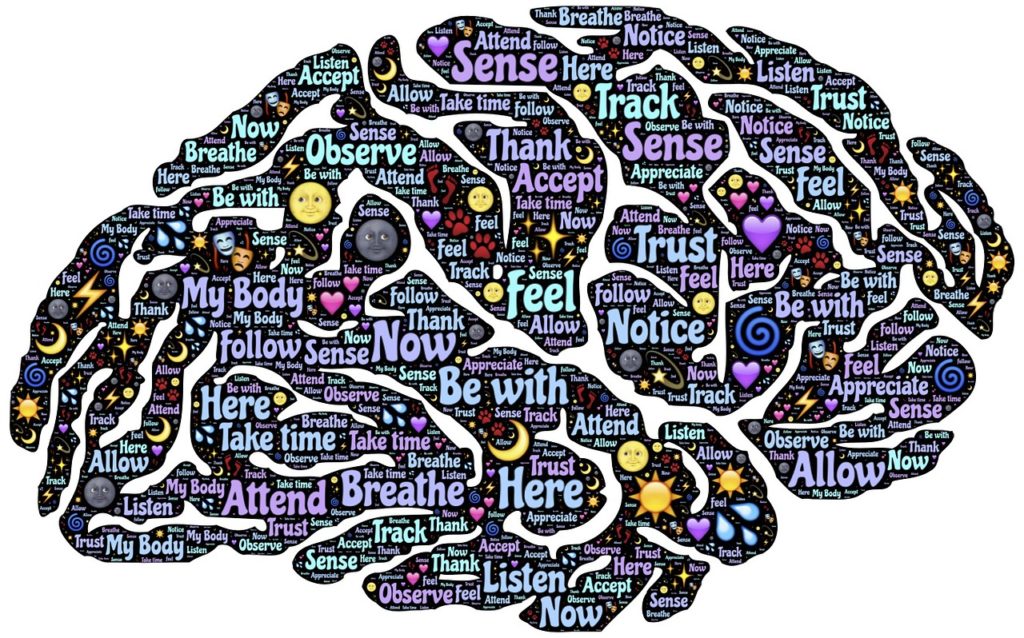EMOTIONAL REASONING
You let your feelings guide your interpretation of reality.
Examples: “I feel depressed, which proves my marriage is not working out.” Or “I’m feeling anxious again, which just shows I won’t be able to handle it…”
MAGNIFICATION
- a.k.a. “catastrophizing" -
You believe that what will happen is so awful and unbearable that you won’t be able to stand it.
Examples: “It would be terrible if I failed.” Or, “What if that happened to me?”
OVERGENERALIZING
You see a single negative event as a never-ending pattern of defeat.
Examples: “I got a ‘D’; god, I’m a lousy student.” Or, “Why does this always happen to me?”
ALL-or-NOTHING THINKING
- a.k.a. DICHOTOMOUS THINKING -
You see things in black-or-white terms.
Examples: “I get rejected by everyone.” or “It was a complete waste of time.”
MIND READING
You assume that you know what people think without having sufficient evidence of their thoughts.
Examples: “He thinks I’m a loser.” Or, “He dissed me ‘cause I didn’t agree with him.”
LABELING
This is a more extreme form of overgeneralization. Instead of describing your error, you attach a negative label to yourself.
Examples: “I’m a loser.” When someone else’s behavior rubs you the wrong way, you attach a negative label to him” “He’s a damn sexist.”
NEGATIVE FILTERING
You focus almost exclusively on the negatives and seldom notice the positives.
Examples: “Look at all of the people who don’t like me.” Or, “I always get the short end of it.”
DISCOUNTING POSITIVES
You claim that the positive things you or others do are trivial.
Examples: “That’s what wives are supposed to do – it doesn’t count when she’s nice to me,” or “Those successes were too easy, so they don’t really matter.”
BLAMING
You focus on the other person as the source of your negative feelings, and you refuse to take responsibility for changing yourself.
Examples: “She’s to blame for the lousy way I feel now.” Or “My parents were really screwed up, and they’re the ones who caused all my problems.”
FORTUNE-TELLING
You predict the future negatively: things will get worse, or there is danger ahead.
Examples: “I just know I’m going to fail that exam.” Or “Be the same old story, and I won’t get that job.”
WHAT-IF
You keep asking a series of questions about “what if” something happens, and you fail to be satisfied with any of the answers.
Examples: “Yeah, but what if I get anxious?” “What if I panic?” “What if I can’t catch my breath?” “What if they laugh?”
INABILITY-to-DISCONFIRM
You reject any evidence or arguments that might contradict your negative thoughts. E.g, when you have the thought I’m unlovable, you reject as irrelevant any evidence that people like you. Consequently, your thought cannot be refuted.
More examples: “That’s not the real issue.” “There are deeper problems.” “There are other factors.”
SHOULD STATEMENTS
You try to motivate yourself with should and shouldn’t, as if you had to be whipped and punished before you could be expected to do anything.
“Musts” and “oughts” are also offenders. The emotional consequences are guilt. “I should exercise more.” “I shouldn’t be such a slob.” “I ought to be smarter/kinder/more caring/more sensitive/more…”
When you direct “should” statements toward others, you feel anger, frustration, and resentment.
Examples: “He should be more attentive.” “She ought to know better.” “They should be less judgmental.”
Next...
...is

